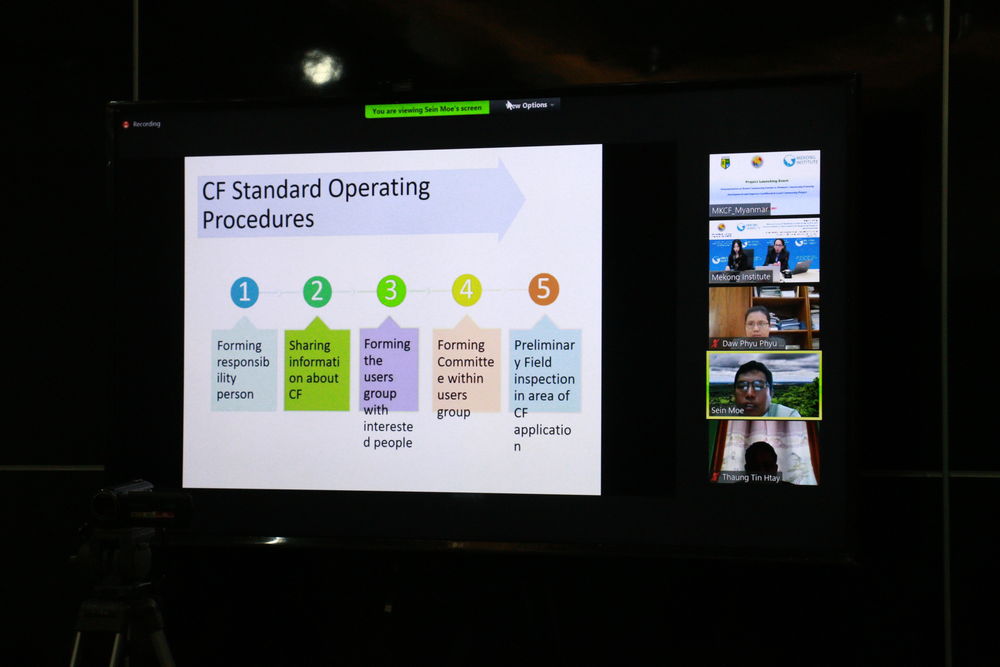“For the project to have sustainable long-term impacts, we must work together to share best practices not just among sectors in Myanmar but across Mekong countries so we can have a strong regional forestry management strategy for collective poverty alleviation and livelihood improvement of communities.”
This was the statement of Mr. Madhurjya Kumar Dutta, Mekong Institute (MI) Director of Trade and Investment Facilitation, during the launch of the “Demonstration of Model Community Forests to Promote Community Forestry Development and Improve Livelihood of Local Community” project on January 6, 2021 via digital channels.
Implemented by Myanmar’s Forest Department, Ministry of Natural Resources and Environmental Conservation, the project is designed to promote forest preservation by working with local communities to institutionalize environment-friendly approaches in managing agroforestry, community-based tourism, and non-timber products.
“We are appreciative of the strong support of the Mekong-Republic of Korea Cooperation Fund (MKCF) and MI in helping the forestry community in Myanmar,” Dr. Nyi Nyi Kyaw, Director General of the Forest Department, Ministry of Natural Resources and Environmental Conservation said. “Our overriding objective is to ensure that our forests are managed in an ecologically sustainable manner to conserve our water quality, silviculture, wildlife and biodiversity.
In Myanmar, 40 percent of forest cover comprise the country’s total land area, where three-quarters of the 49 million population rely on forest products for their income and livelihood.
Dr. Zar Chi Win, a representative from the Forest Department, explained that the project will focus on building participatory conversation and management through capacity building trainings and restoration activities across three forest sites in Nay Pyi Taw and Kayah State.
The project is one of 20 supported by MKCF beginning in 2013. Of these 12 are currently being implemented. As fund manager and coordinator of MKCF, MI works with implementing agencies from Cambodia, Lao People’s Democratic Republic, Myanmar, Thailand, Vietnam, and Korea. These have strengthened capacities in information communication technology for market expansion, designing greener growth models for economic and environmental advancement, improving water resource management, facilitating a regional agriculture value chain and deepening regional cooperation through education, skills development, trade and business.








